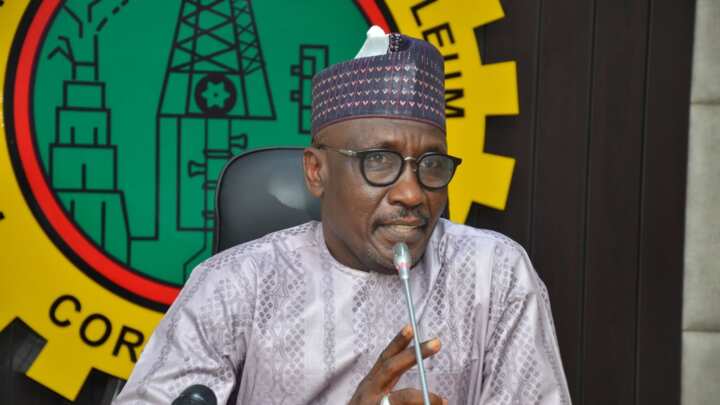The Nigerian National Petroleum Company Limited (NNPCL) has clarified that the sudden spike in the price of premium motor spirit (PMS), commonly known as petrol, was a direct result of market forces.
Mele Kyari, the Group Chief Executive Officer (GCEO) of NNPCL, made this known while addressing journalists at the Presidential Villa, Abuja on Tuesday.
In the Federal Capital Territory (FCT), Abuja, petrol pump prices had surged from N540 to N617 per litre as of Tuesday morning.
Shedding light on the observed escalation at fuel stations, he emphasized that the price surge was a natural consequence of the market’s self-regulating mechanism.
Kyari further argued that the price increase was not linked to a shortage of petrol, assuring the public that pricing would fluctuate periodically, in accordance with international market activities.
“We have the marketing wing of our company that adjusts prices based on market realities. This is precisely how market regulation works, leading to both price increases and decreases. The current market situation is a reflection of this reality,” Kyari stated.
The NNPCL CEO dismissed any concerns about supply issues, asserting that the country had a robust supply of over 32 days. He emphasized that market forces would determine price adjustments, guaranteeing a stable supply in the process.
While admitting that he did not possess the specific details at that moment, Kyari confirmed that various companies had imported petroleum products. He attributed the market’s newfound stability to the growing confidence of private sector players in importing products at market-reflective costs.
Adding his perspective to the situation, Farouk Ahmed, the Chief Executive Officer of the Nigerian Midstream and Downstream Petroleum Regulatory Authority (NMDPRA), attributed the price increase to the rising cost of crude oil.
“The market will determine itself, and prices are based on the cost of importation, freight, distribution logistics, and the importer’s profit margin. This deregulated market allows all participants to operate freely. We have witnessed about 56 marketing companies obtaining licenses to import, with 10 of them indicating plans to supply during the third quarter,” Ahmed stated.
The NMDPRA CEO highlighted that several cargoes had already arrived from key marketers such as Prudent Energy, AYM Shafa, and Emadeb, with the latter’s cargo set to arrive shortly. Ahmed clarified that as a regulator, the authority did not impose price caps as it was not involved in importing or marketing petroleum products.
He explained that the prices were influenced by the cost of importing crude oil, which had recently risen from around $70 per barrel to approximately $80 per barrel. These import costs, along with other expenses in local distribution, contributed to the final product price.

